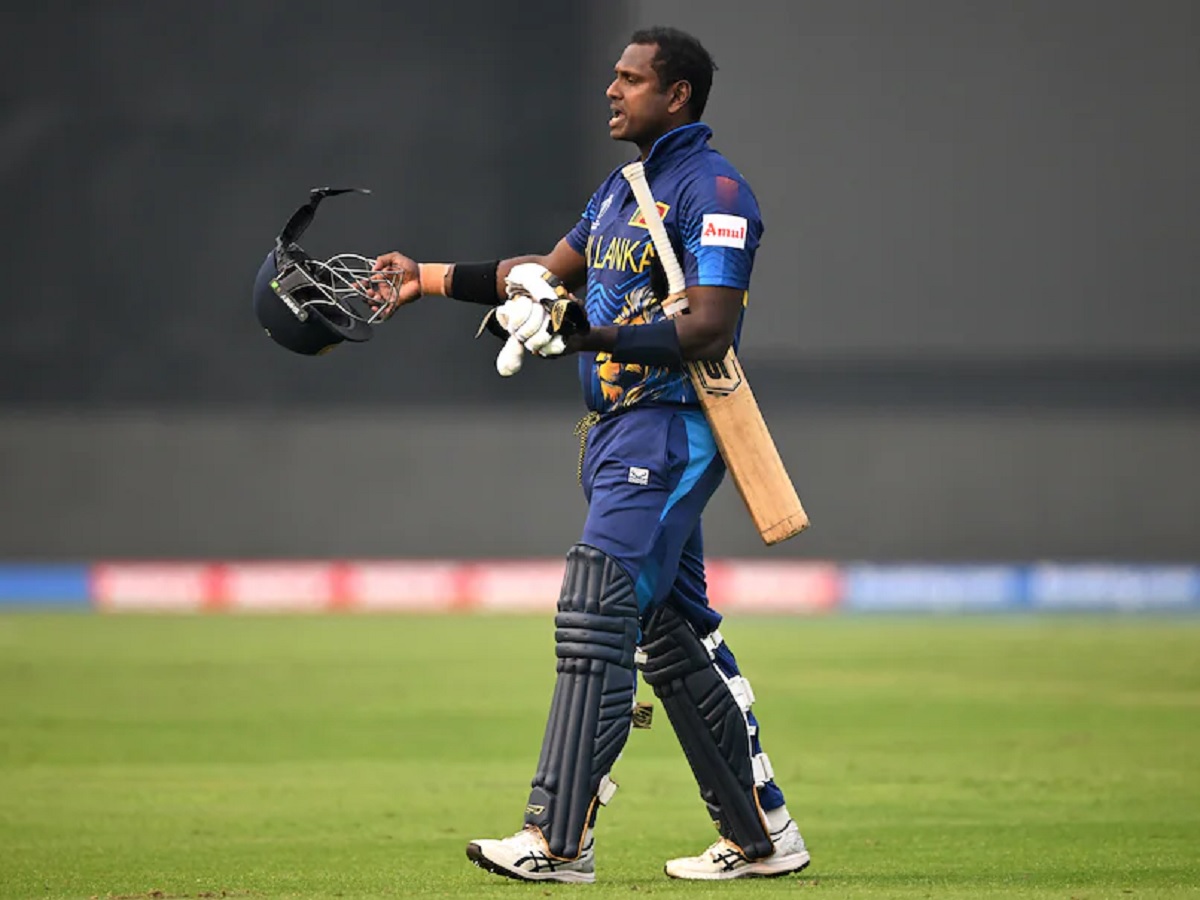Sri Lanka all-rounder Angelo Mathews on Monday became the first batsman to be dismissed by being timed out in 146 years of international cricket history as an ungenerous Bangladesh refused to give any consideration to the spirit of cricket in their World Cup match at the Ferozeshah Kotla grounds here in New Delhi on Monday.
The dismissal of Mathews, however, did not stop the Sri Lankans to make 279 all out in 49.3 overs. The total was helped largely by Charith Asalanka’s 108 (105 balls; 6x4s, 5x6s). Pathum Nissanka made 41 off 36 balls whereas Dhananjaya de Silva hit 34 off 36 balls. Bangladesh pace bowler Tanzim Hasan Sakib took 3/80.
Mathews walked in to bat at the fall of Sadeera Samarawickrama’s wicket – fourth of Sri Lankan innings — in the 25th over. But before he could face any ball, the veteran realised that the strap of his helmet was broken.
The 36-year-old called for a replacement helmet and exhausted the two-minute limit set for a batsman to face the first ball. Bangladesh appealed and the umpires gave Mathews out.
The veteran of 106 Tests and 225 ODIs was visibly annoyed as he threw the helmet in disgust while crossing the boundary line on his way back and was seen complaining to officials.
However, as per ICC Men’s Cricket World Cup 2023 playing conditions, he was out.
“After the fall of a wicket or the retirement of a batter, the incoming batter must, unless Time has been called, be ready to receive the ball, or for the other batter to be ready to receive the next ball within 2 minutes of the dismissal or retirement. If this requirement is not met, the incoming batter will be out, Timed out,” says rule 40.1.1 of Marylebone Cricket Club (MCC), from which laws of cricket are derived.
Earlier, the time that needed to lapse before dismissal was three minutes. However, it was later reduced to two minutes.
Mathews, anyway, had allowed plenty of time to pass and even the three-minute rule wouldn’t have sufficed. The difference in time between dismissals of Samarawickrama (41 off 42 balls) and Mathews was five minutes – Samarawickrama was dismissed at 15:49 while Mathews’s dismissal took place at 15:54.
Former international umpire SK Bansal said that as per the laws, Bangladesh had every right to appeal and accept the dismissal.
“Mathews should be aware of the laws. He could have just given the helmet to the umpire and said that I am ready to face the bowler (it was anyways slow left-arm bowler Shakib al Hasan bowling that over). The umpire then would have decided on the merit of the case,” said Bansal, who also narrated a similar incident that involved former India captain and BCCI chief Sourav Ganguly.
“Ganguly once took about five minutes to come out in a Test match if I can recall, but he provided genuine explanation saying that the door he was to come out of was locked. The umpires excused him and he was allowed to bat. The rule is there and umpires have to abide by it. So they were not wrong in giving him out.”
Delhi has witnessed quite a few records during the ongoing World Cup. It saw the biggest World Cup score set by South Africa (428/5) against Sri Lanka, the two fastest centuries (off 40 balls by Glenn Maxwell; and off 49 balls by Aiden Markram) as well as the biggest margin of victory in World Cup (by Australia against Netherlands).
The Mathews incident was yet another addition to the records in Delhi.





